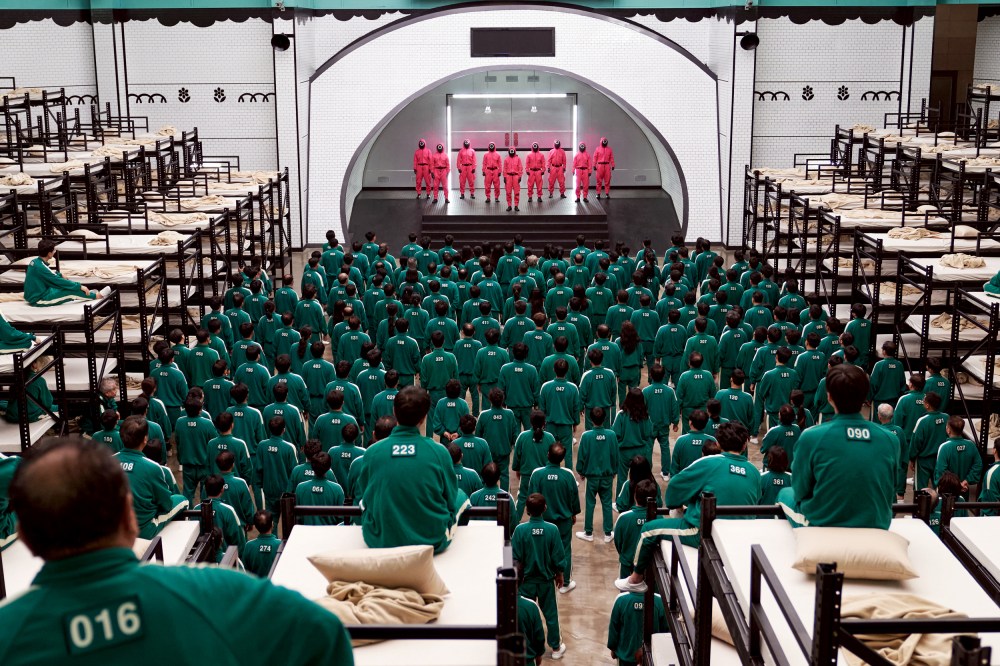Over the past few weeks, the internet has been teeming with buzz surrounding “Squid Game,” the South Korean survivalist drama that hit No. 1 in 90 countries and has become Netflix’s biggest series launch ever.
What explains the show’s astonishing explosion in popularity?
(Warning: This article contains spoilers for “Squid Game.”)
For starters, it is highly memeable: It features memorable visuals, a catchy score and simple children’s games played by indebted adult contestants who fight each other to the death for a life-changing sum of cash. The show at turns enchants and horrifies the viewer, and it lends itself naturally to social media banter.
But it’s also evident that its full-throttle critique of capitalist exploitation and individualism is making it resonate globally. And like with many mega-pop-culture phenomena, the points are not made subtly.
While the political position of “Squid Game” is as in-your-face as the shocking gore of the show, its ideas extend beyond pointing out that capitalism entails barbarism.
“Squid Game” is the latest entrant into a growing collection of films and shows — including “The Hunt,” “The Platform,” “The Hunger Games” series and “Black Mirror” — that use dystopian games with life-or-death stakes to dramatize the cutthroat ethics of pitting desperate masses against each other in a fight for unequally distributed resources. Each work of art literalizes commonly used metaphors for the indignities of capitalism: It is not symbolizing a dehumanizing race operating under a false banner of meritocracy; it is one.
While the political position of “Squid Game” is as in-your-face as the shocking gore of the show, its ideas extend beyond pointing out that capitalism entails barbarism. Amid some clichéd band-of-brothers tropes lie some subtle points about consent, cooperation and power that make the show more complex than it might seem at first blush.
At first, “Squid Game” seems headed in a very obvious direction. A wide-ranging collection of desperate and debt-burdened Koreans, as well as a migrant worker from Pakistan, are seduced into joining a tournament for a huge cash prize only to learn that being eliminated from any game results in being summarily executed. The plot that seems to lie ahead is a straightforward survival tale.
But after the first game, the participants make use of a contract clause allowing for the suspension of the games if a majority of players desire it, and the players return home, causing an unexpected break in the rhythm of the show. Only then, back in the real world, life doesn’t seem much better. The players find themselves crushed by financial desperation and shame, and they opt to return to the tournament.

Once the games begin again, the players know what they’re getting into, and they enter a strange gray area of consent: They’re volunteering to enter the games, but they’re also being coerced by circumstance; they have no other plausible alternative for achieving the financial freedom that would make life bearable. Moreover for protagonist Gi-hun, the games provide the sensation of personal agency that he’s been craving for years after a traumatic layoff and being hounded by black market lenders to whom he owes money.












